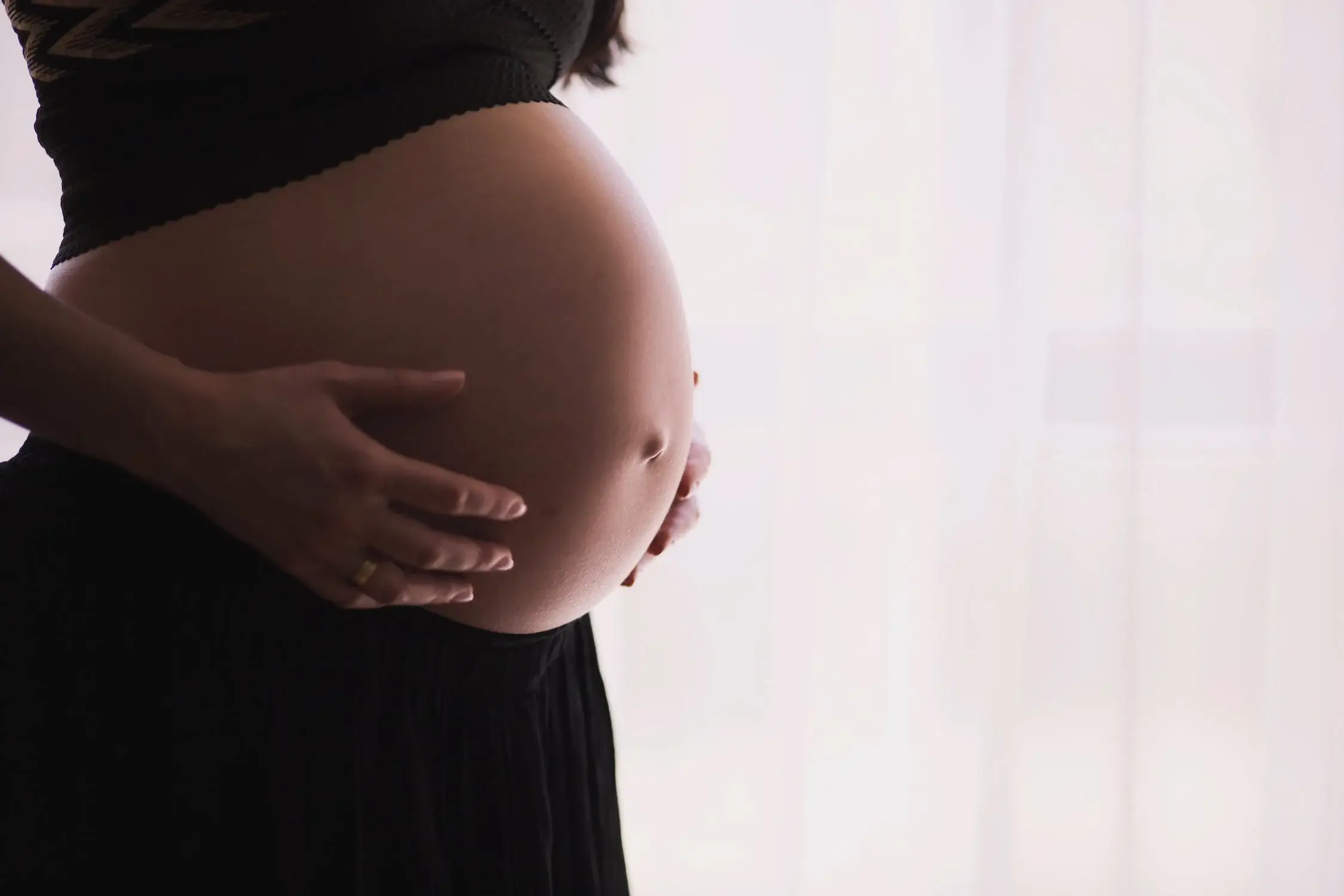Women can still get pregnant, through IVF (in vitro fertilisation), even after menopause. However, this does come with some risks that should be considered.
Pregnancy is the ability to conceive a fertile offspring after sexual intercourse. It is the fusion of a female egg, which is released from the womb follicle, with a male sperm, which is produced in the male testes. An egg is made in the womb under the direction of Oestrogen and Follicle Stimulating Hormone (FSH) and released at day 14 of the female menstrual cycle after a surge of Luteinising hormone (LH).
If the egg meets the sperm in sexual reproduction, it implants itself in the womb lining under the direction of Progesterone hormone. The sperm requires signals from Testosterone hormone and FSH for production. Too much and too little Oestrogen and Testosterone, LH, Progesterone and FSH, thus play a huge role in infertility.
What Is Menopause?
Every woman will have a reproductive window of approximately 14-50 years of age, with the optimal age for conception 18-31 years of age. Before this, her womb and body are not fully grown to best support a pregnancy (though it does vary person to person), and after this the quality of her eggs and number of eggs, falls. At 18-31 a woman has 300000-400000 eggs, at 35 this has dropped to 75-50000 and by 40 she has as few as 1000 eggs. The genetic quality of the eggs also falls as a woman ages, and so she is more likely to have a stillbirth, miscarriage or child with a genetic disease such as Down’s Syndrome.
As a female ages, the level of her Oestrogen fertility hormone falls. As Oestrogen is required for menstruation, without it a female cannot naturally produce an egg. Menopause can happen because of surgical intervention (such as as a result of a hysterectomy following ovarian cancer), or after chemotherapy, but most often occurs naturally.
What Are the Symptoms of Menopause?
There is pre-menopause (when your levels of Oestrogen drop) and perimenopause (when you are in the menopause) as well as post-menopause (when you have ceased to be biologically fertile). Menopause is the cessation of female reproduction. The hormonal changes that occur during perimenopause vary, but some common symptoms are:
- Hot flashes
- Sweating
- Irregular bleeding
- Insomnia
- Lower libido
- Mood swings
- Memory problems
- Headaches
There are also other symptoms, such as joint pain or rapid heart rate and others.
Is It Possible To Get Pregnant After Menopause?
It is not possible to have a natural birth without Oestrogen as you stop producing eggs. However, if you have frozen an egg earlier, or use a donor egg and artificial hormones, in vitro fertilisation or a surrogate, there are still pregnancy options available to you. Also, as time progresses, more and more fertility procedures are being developed which can assist in reproductive capacity. IVF (in vitro fertilisation, assisted reproductive technology) and surrogacy are viable options, which enable many menopausal women to conceive.
If an individual has a family history of early menopause, or they think it'll be unlikely for them to conceive naturally before menopause, then freezing eggs during the reproductive window is recommended. This is because egg freezing, when you freeze your eggs under nitric oxide and then use IVF when you are ready to conceive a child, removes the risk that you will not have a viable egg. Egg freezing, nonetheless, may be a considerable expense or come with risks after menopause. Likewise, it is not currently offered on the NHS unless a woman is undergoing ovarian cancer treatment which will cause her to go through premature menopause.
If you have concerns about early menopause prematurely stopping your fertility and chance of motherhood, it is best to get your number of eggs checked. This is achieved through testing a female's hormone levels (FSH, LH, oestrogen, testosterone and progesterone) as well as for AMH (anti-müllerian hormone). In addition, an ultrasound of the womb is done to visually identify the number of eggs in the uterus.
If you have a low level of eggs, it may be wise to consider egg freezing or conception before your window of opportunity for fertility closes. It is better to check and avoid the risk of potential heartache. A fertility clinic can best advise you on your fertility options based around this.
What Are the Risks of Pregnancy After Menopause?
There are some risks following menopause for those wishing to get pregnant. Generally, it is very unlikely to get naturally pregnant following menopause. However, IVF may help those that have gone through the menopause to get pregnant. IVF combines an egg and a sperm in a laboratory. After fertilisation has occurred, the embryo is then placed inside the woman's uterus.
Because women who have gone through menopause will no longer have eggs, or ovulate, a donor egg is used instead. The donor egg is then combined with sperm, either a partner's or a donor's. However, if the woman has frozen her eggs then she will be able to use one of her own.
Nonetheless, there are some risks that come with IVF. Because IVF increases the chances of having multiple pregnancies, this can be considerably risky for those that have been through menopause. To combat this, the fertility specialist will then only transfer one embryo at a time.
Women aged after 35 who get pregnant, in addition, are at an increased risk of:
- Miscarriage
- Preeclampsia (high blood pressure during pregnancy)
- Premature birth
- Genetic disorders occurring (such as Down's Syndrome)
- Cesarean (C-section)
That's not to say that IVF cannot help conceive a healthy child. But, using a younger donor's eggs may prevent such risks happening.


 71–75 Shelton Street, Covent Garden, London, WC2H 9JQ
71–75 Shelton Street, Covent Garden, London, WC2H 9JQ +44 (0) 20 3376 1032
+44 (0) 20 3376 1032



